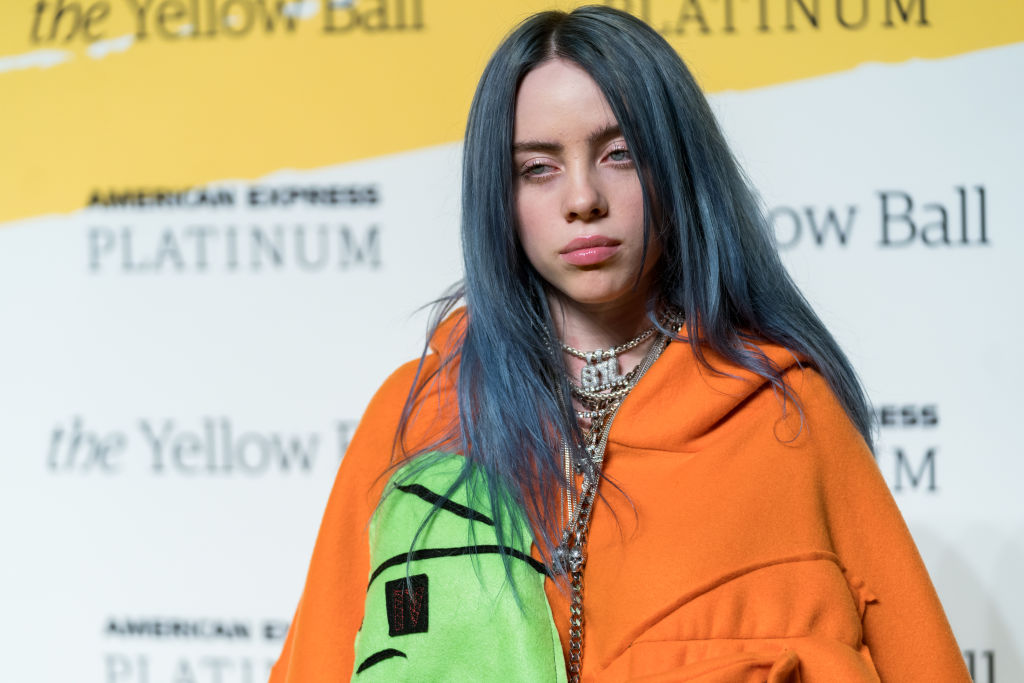Why Billie Eilish Was Forced to Reveal Her Medical Condition to Concerned Fans
Billie Eilish was hesitant to admit that she has Tourette Syndrome. But since she’s started discussing it, she’s been able to make a difference and bring understanding to a condition that is often misunderstood. However, we almost didn’t find out about her condition. Why didn’t Eilish talk about her condition at first and what made her finally open up? The answer may surprise you.
Billie Eilish first revealed she has Tourette’s on Instagram

Although Eilish’s condition has recently made headlines again after an interview on The Ellen Show, Eilish first revealed that she lives with Tourettes Syndrome after a compilation video of her ticks appeared on social media. Back in 2018, Eilish posted to her Instagram to clear up the situation.
“I would love to get this straight so everyone can stop acting goofy. I have diagnosed Tourette’s,” she started the post.
She then explained why she never mentioned it before, and it’s a commendable reason. Eilish didn’t want people to think of Tourerette’s every time they thought of her. You can’t really blame her for that. She wanted to be known for her music, not her condition.
“I’ve taught myself ways of suppressing my ticks and certain techniques to help reduce them when I don’t want to be distracting in certain situations,” the post read.
She also explained that she grew up with the condition, and it’s something her family and closest friends are all aware of. But her intention wasn’t to try to hide her Tourette syndrome. In fact, Eilish even claims in the post that she’s open to questions if anyone wanted to know more.
The post ended in good humor and showed her incredible strength. She wrote: “Those compilations yall been making of my ticks are low-key funny even when yall make fun of them n sh*t.”
Billie Eilish’s confession helped her fans
We learned more about Eilish’s condition and the response she’s received from it her during her interview with Ellen DeGeneres. She again explained that she’s had the diagnosis since she was a child and that she didn’t announce it at first because she didn’t want to be “Billie Eilish the artist with Tourette’s.” DeGeneres pointed out that Eilish is an inspiration to people all across the country who are living with the condition.
“I think it’s amazing that you spoke about it because you kind of took away the scariness of it,” DeGeneres told Eilish.
But what Eilish found amazing is the sense of community that she found after admitting her Tourette’s.
“A lot of my fans have it, which made me feel kind of more at home with saying it,” she said.
Fans with Tourette Syndrome have contacted Eilish and told her that they feel inspired knowing that she also has the condition, and that’s probably the best thing to come out of those rather mean-spirited compilation videos.
What is Tourette Syndrome?
People with Tourette Syndrome sometimes face discrimination because their condition is misunderstood. Tourette Syndrome is a nervous system disorder that causes involuntary movements or sounds, which are referred to as tics. When people think of Tourette’s, the image of a person yelling out profanity often comes to mind, but it doesn’t always look like that. Tics can be curse words, but it can also be other kinds of words or sounds.
Involuntary movements are another kind of tick. An example may be twitching or jerking. The way a person’s Tourette’s manifests is completely individual and can look different from person to person. Eilish has said that her tics are physical, not verbal. She’s been able to learn how to control them to some extent so that it’s not super noticeable to everyone she meets.
The way that Eilish has been able to talk about her condition is great for the community as a whole. It allows those who aren’t familiar with Tourette’s to see that people with the condition are just like everybody else. It’s given those living with the diagnosis a role model to look up to, and it’s given Eilish an opportunity to feel less alone since she’s been able to meet so many fans that also have the condition.


